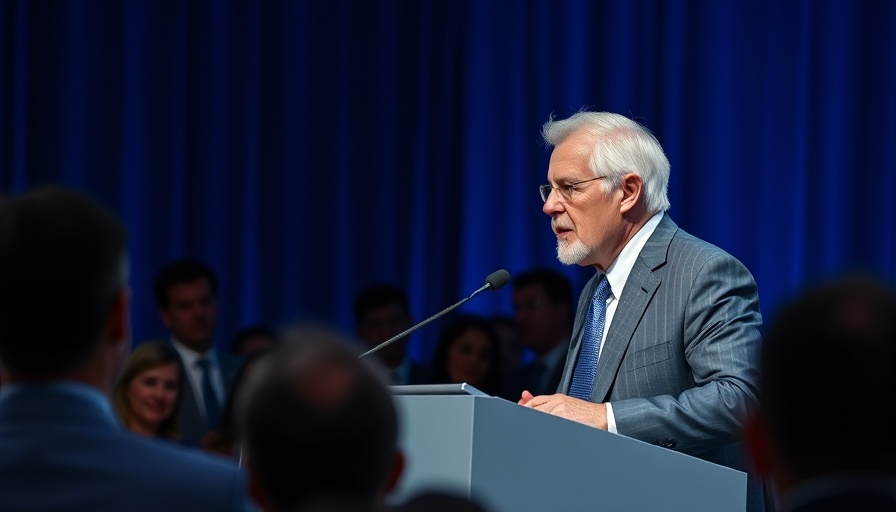
Wright's Energy Vision: A Direct Challenge to Biden's Climate Policies
U.S. Energy Secretary Chris Wright has made headlines after vowing to reverse the Biden administration’s climate policies during a recent address at the CERAWeek by S&P Global energy conference in Houston, Texas. His comments have sparked significant conversation among fossil fuel executives, as he heralded a bold pivot back to traditional energy sources, emphasizing the expansion of fossil fuel production and the rejection of stringent climate measures. Wright expressed a desire to 'play a role in reversing what I believe has been a very poor direction in energy policy.'
Revisiting Energy Policies: A Shift Towards Fossil Fuels
In his speech, Wright criticized the approach taken by the previous administration, claiming it was too focused on climate change, often at the expense of economic growth. This is not just a personal opinion but a reflection of a substantial ideological shift under the Trump administration. By highlighting the vital role that fossil fuels play, particularly in alleviating poverty, he argues that transitioning too quickly away from these resources could harm billions. Wright stated, 'There are billions of people on this planet that still live sad, short, difficult lives because they live in energy poverty.' His remarks resonated with a receptive audience of oil and gas executives, who share concerns focused on global energy prices and the future of energy accessibility.
Can Renewable Energy Coexist with Fossil Fuels?
Wright has dismissed renewables as a feasible substitute for fossil fuels, pointing out that they account for only a small fraction of the energy supply. He believes the transition to wind and solar energy presents insurmountable scale and cost challenges, stating, 'There is simply no physical way wind, solar, and batteries could replace the myriad uses of natural gas.' This perspective underscores a broader debate within the energy sector: Can a balance between fossil fuels and renewables be achieved? While Wright's views reflect a strong desire to protect traditional energy jobs, they overlook the substantial investments made globally in renewable technologies. With about $1.2 trillion spent on renewables in 2024 alone, the momentum for clean energy continues to build despite his claims.
The Global Climate Conversation: Wright's Controversial Stance
Wright's comments have met criticism from environmental advocates who argue that fossil fuels are a primary driver of climate change. Mohamed Adow, director of the NGO Power Shift Africa, stresses that failing to recognize the adverse effects of fossil fuel production on vulnerable populations, especially in developing countries, is ultimately shortsighted. The tension between energy expansion and climate health presents a critical dilemma that policies in this area must navigate moving forward.
Political Reactions and Future Implications
The response from the environmental community reflects broader concerns about the shift in U.S. energy policy. Mark Brownstein, from the Environmental Defense Fund, warned about the long-term implications of Wright's rhetoric and the potential for stagnation in eco-friendly practices as communities and corporations seek to invest in energy projects. As practical steps in energy policies continue to unfold under the Trump administration, questions arise about the sustainability and stability of such an approach in the face of climate realities.
Conclusion: A Pivotal Moment for Energy Policy
Chris Wright’s remarks represent a significant moment in U.S. energy policy, pitting traditional fossil fuel interests against the growing demand for sustainable solutions. As the world grapples with climate change, the policies implemented by the Trump administration will likely resonate well beyond U.S. borders. As citizens, it’s essential to stay informed and engaged about energy debates that will shape our planet’s future.
Call to action: Understanding the complexities surrounding energy policy is crucial for informed citizenship. Stay updated, participate in discussions, and voice your opinions at community forums to make your voice heard regarding the future trajectory of energy and climate policies.
 Add Row
Add Row  Add
Add 




Write A Comment